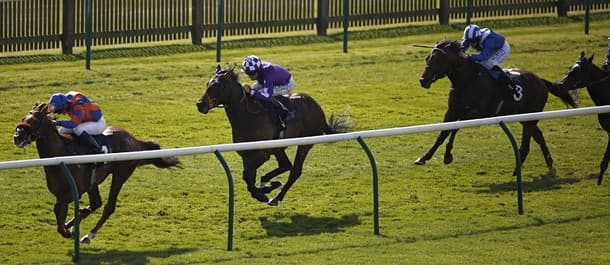European Commission Okays Central Funding Levy System for UK Horseracing
The European Commission, part of the European Union, has approved the United Kingdom’s move to extend its Horserace Betting Levy to apply to offshore gambling operators, and thus provide additional revenue in support of the UK’s horseracing industry.
 The European Commission’s formal approval of the Horserace Betting Levy extension was announced on Friday amid the EC’s daily news updates. The notice, in the form of an endorsement (text at bottom), advises that the UK’s plans to force offshore sites to pay the 10% levy, based on Gross Gambling Yield (GGY), doesn’t violate the EU’s state-aid rules.
The European Commission’s formal approval of the Horserace Betting Levy extension was announced on Friday amid the EC’s daily news updates. The notice, in the form of an endorsement (text at bottom), advises that the UK’s plans to force offshore sites to pay the 10% levy, based on Gross Gambling Yield (GGY), doesn’t violate the EU’s state-aid rules.
Operators serving the UK market must generate £500,000 in GGY in any given year for the levy to take effect. Funds derived from the Horserace Betting Levy will be, according to the British Racing Authority, “targeted at growing the grassroots of British racing and will also support integrity, equine welfare, veterinary science and the mental and physical wellbeing of the sport’s participants.”
Per a BHA statement, that mission statement includes the following specifics:
- Racing’s grassroots – improving prize money for participants to allow them to maintain their involvement in the sport, keep horses in training and improve the racing product;
- Jobs – help recruitment, retention and growth of jobs in racing and in the rural economy;
- Small businesses – by supporting the growth of the sport, help the future of small businesses such as farriers, vets, feed and equipment suppliers and many others;
- High standards of integrity in British racing – including anti-doping and anti-corruption measures;
- Participant welfare and training – including initiatives to support the mental and physical wellbeing of participants, and education and training opportunities for young people to become involved in the sport;
- The wider British horse sector – through veterinary science research and education funding, disease surveillance, and support for rare breeds societies.
Online wagering on horseracing is estimated to account for 50% of all such wagering in the sport, and British government and horseracing officials believe the industry has been deprived of £30 to £40 million annually from international operators offering wagering on British races. A goodly but inexact percentage of that is attributed to former British gambling companies that relocated en masse to Gibraltar in search of the tax shelter available under the then-antiquated British gambling business laws.
The new levy went into effect on Tuesday, April 25th, after the UK’s Department for Culture, Media and Sport received formal confirmation of the EC’s endorsement on Monday. The tax will stay in effect as long as the United Kingdom remains part of the EU. Once the UK’s Brexit occurs, all international operators still will be subject to the levy (and most of them will pay it), but the UK could find it modestly harder to collect on the revenue owed.
According to Nick Rust, Chief Executive of the British Horseracing Authority, “With the final, outstanding approval now secured from the European Commission, today marks one of the last few steps in the process of securing a fair return from all betting on our sport. We look forward to receiving confirmation shortly from Government of when the new legislation will take effect.”
Added Rust, “We look forward to working closely with bookmakers to build an exciting future for both our industries. The new levy has the potential to put an end to unnecessary divisions between racing and betting as it creates a level playing field, removes the need for annual negotiations on the rate and provides long-term certainty for both parties.”
Here’s the EU’s formal endorsement, in its preliminary form:
State aid: Commission endorses reform of UK Levy scheme on horserace betting
The European Commission has endorsed a reform of the existing UK Horserace Betting Levy scheme as in line with EU state aid rules. The reform will subject off-shore bookmakers to the levy whereas currently only bookmakers based in the UK contribute to the financing of horse racing. It will establish a 10% levy on the Gross Gambling Yield (GGY) applied to all betting operators for their part of the GGY above a de minimis threshold of £500,000/year. The Commission has approved the measure because it recognises that it is essential for the improvement of horse breeding and horseracing without giving rise to undue distortions of competition. The measure also creates a level playing field among betting operators while at the same time supporting entry of new operators and the development of competition between betting operators, thanks to the de minimis threshold. This Commission decision will apply until the UK ceases to be a member of the EU. More information will be available on the Commission’s competition website, in the public case register under the case number SA.46216.
- European Commission
- European Union
- GGY
- Horserace Betting Levy
- hrseracing
- levy
- tax
- UK
- United Kingdom





